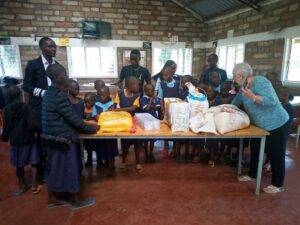We allow God to give life to ourselves … whenever we assist in giving life to others
The plan of God is always a plan for life – and a happy life at that! But what does it mean to have a happy life? A happy life has a balance of joy and sacrifice: pleasure and pain. A happy life includes moments of sadness, stress and difficulties, otherwise we’d never grow-up & up; and never be strong enough to protect life with the new challenges that come over time.
As our world moves more and more towards a culture of death, the 1st Reading emphasises the great desire of God for LIFE. Euthanasia, abortion, death sentence, wars, etc. are not life.
Although those big issues above are important, what is even more important are the reasons why we have come to the point of choosing death as we have done. I believe it is because of the many small things that kill life every day: eventually leading to the desire for death.
What are the little ways we “take life” every day: (you can add, but here are some suggestions)
1) failing to laugh (and to appreciate/ praise others for who they are);
2) failing to share a little of what we have;
3) abusing people with our harsh words, silence or violence;
4) neglecting to speak to people who depend on us
(eg. parents wasting time with their kids, children calling up their parents regularly).
As teachers: do we “take life” when we fail to prepare properly for classes and deny our students the very best we can give? As Engineers: do we take care to create safe structures that won’t fall down, or do we rush our work? As Business People: do we provide safe working environments so people go home each day to their families in good health?
As Government Leaders: do we make available resources for the poorest people in our communities; create safe environmental laws; and prevent corruption?
And, finally, do we as Priests: prepare properly for Mass so we don’t waste people’s good time with boring sermons and poorly animated Masses? Are we available for people in need? Do we speak the truth at the right time, and in the right way? Do we condemn or empower?
Our Gospel reveals a woman suffering for long: “Now there was a woman who had suffered for twelve years; after long and painful treatment under various doctors.”
It speaks about the danger of placing too much trust in worldly help: it doesn’t last long. The woman then says: “If I can touch even his clothes.”
This provides the basis of lasting health in body and spirit = we do what we can (reaching out) but we also have faith and trust in God. When people declared the little girl dead, Jesus says: “The child is not dead, but asleep… Give her something to eat.” This is our invitation to help give life: to be co-creators includes being co-protectors.
When I reflected on this I thought of our dear sister – Oblate youth member – working as a teacher in Tharaka Nithi. Her school has poor facilities and even poorer people. As she said one day, “we are more than teachers, we are like second parents to the few children that come. We show them love, as we do more than just teach the children their education curriculum.”
 I also thought of our Oblate Youth in Nairobi, selflessly giving the little they have to visit, encourage and leave gifts of food for children in some of the poorer orphanages around.
I also thought of our Oblate Youth in Nairobi, selflessly giving the little they have to visit, encourage and leave gifts of food for children in some of the poorer orphanages around.
It makes the Second reading come alive for us: “This does not mean that to give relief to others you ought to make things difficult for yourselves.” We don’t just hope, but we know for sure:
that God will bless these generous young people with what they need in the coming months and years: “it is a question of balancing what happens to be your surplus now against their present need, and one day they may have something to spare that will supply your own need.”
What about the rest of us? I was happy to see Australia and New Zealand are still in the top 10 most generous nations in the world (in terms of ordinary people giving donations to help the poor at home and overseas). The other 8 countries are less wealthy countries than Australia. One wonders what has happened to our rich cousins in Europe, England, Canada and the US.
I believe one of the fundamental truths of life is this: we allow God to give life to ourselves whenever we assist in giving life to others. There is a famous Tibetan Proverb that explains the secret to living well and longer: eat half, walk double, laugh triple & love without measure.
Coming back to St Paul’s point “This does not mean … you ought to make things difficult for yourselves.” So, for example, let’s reflect on how much we spend on meat in our diet? Too much meat isn’t good for our health: can we reduce a little & give the savings to help others?
Life for ourselves, should not mean death for others. So it’s quite exciting to watch recent documentaries showing how God’s grace is working through our scientists, and many young people, with new green energy and agricultural advances. Let’s open our eyes a bit more.
By Gerard Conlan, OMI


